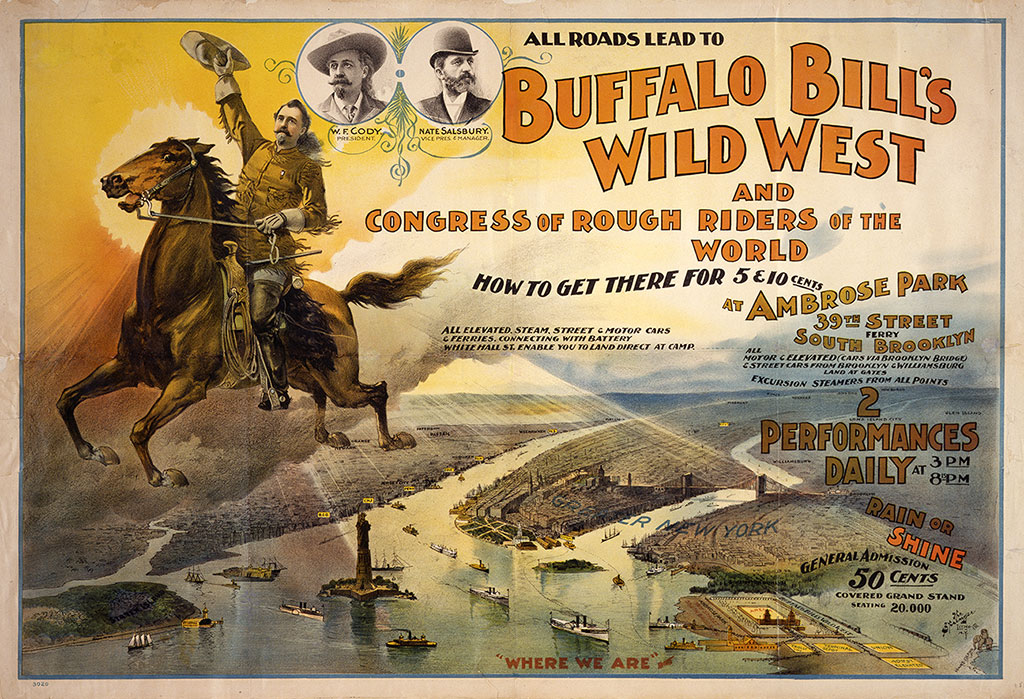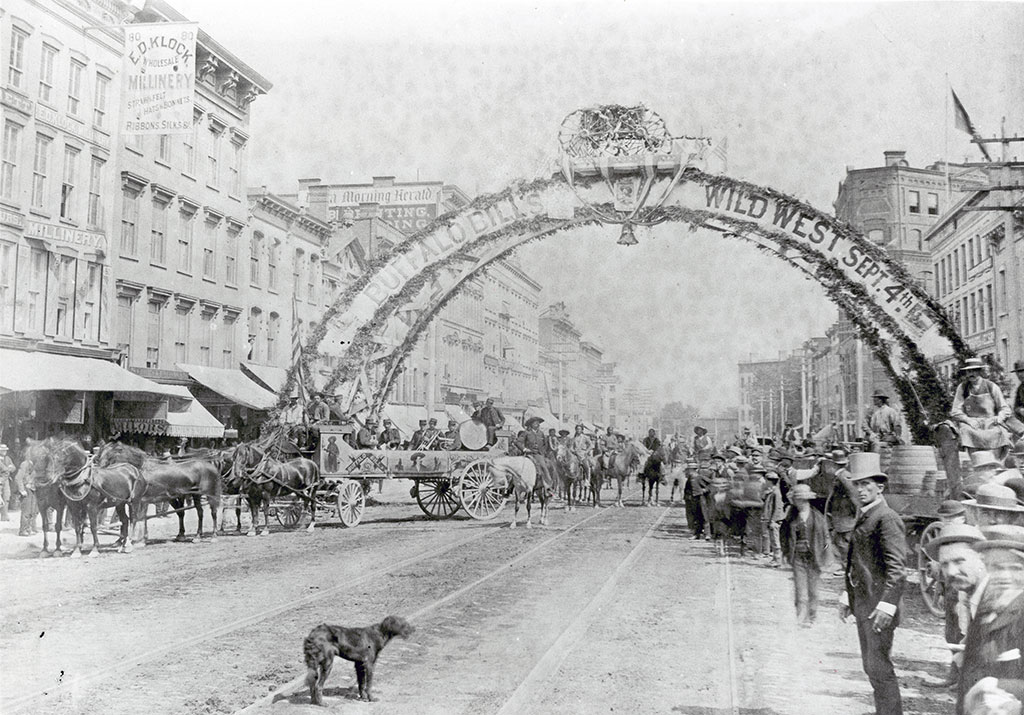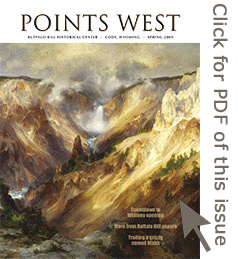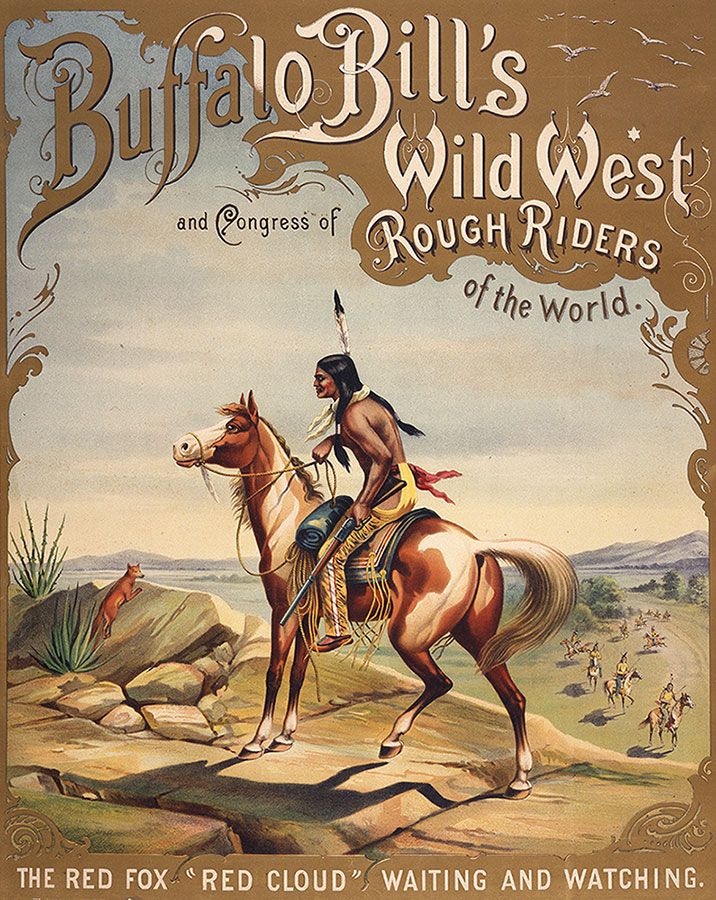Originally published in Points West magazine
Summer 2009
Wall Street Meets the Wild West
With bankrupt railroads, runs on gold and silver, bank failures, and unemployment rates in the teens, the Panic of 1893 set off a depression in the 1890s that some would argue is quite similar to the current economic condition of America today.
Even the most learned of men and women are hard-pressed to find a medicine to heal the economy’s ills. Near the turn of the twentieth century, however, a doctor in New York had just the cure for a businessman who shared the same worries as investors today. Dr. John Rumm, former curator of the Buffalo Bill Museum, recently discovered this story from the Brooklyn Daily Eagle, September 10, 1894, with an unusual “elixir” for Wall Street woes.

“You need a complete change of scene,” said a fashionable doctor to a tired, worn Wall Street man. “A change of scene!” cried the stock operator.
“Why, doctor, I couldn’t leave my business to get any sort of a change. Give me some prescription that I can follow.”
The doctor thought a few minutes and then, taking a prescription blank, wrote upon it “Go to Buffalo Bill’s Wild West show,” and without another word, he arose and left the office.
The broker gazed at the little slip and a faint smile overspread his pale face, but the idea struck him. That night, he boarded a boat at Whitehall Street and started for the Wild West grounds at Ambrose Park.
As the boat passed Governor’s Island, the tired man braced up a bit, under the influence of the fresh breeze which blew from the sea, and looked about him. Instead of the tall buildings which had hitherto been around him, he saw the lofty masts of ships, lighted boats with laughing parties all around him, and, far off to the southeast, the bright lights which marked the present home of the Wild West show.
He already felt better, and before he had ceased to contemplate the (to him) strange scene, the boat with a bump pulled up at the Ambrose Park dock. Then the change of scene began in earnest, for as he entered the great arch surrounded by three stuffed buffaloes, a sight met his gaze which all of the wealth acquired by years of toil could not purchase for him in these days.
To the right of the entrance stood the pyramid-like tent of Buffalo Bill and Nate Salsbury, the owners of the show, and a pleasing background was formed for this by the tent villages of the cowboys, Mexicans, Russians, Gauchos, and Arabians. “Jove,” muttered the broker, “what have I struck, here north, south, east and west altogether, and no sign of trouble!”
He walked on a little further and was astonished to see an Indian woman stirring up something which simmered in a black kettle, which hung suspended from a black tripod over a pine wood fire. The business man looked around at the encampment. Indians in full war paint moved to and fro and the onlooker forgot that there was such a place as Wall Street. The idea that this was near the end of the nineteenth century never occurred to him.
A bugle sounded in the night air and the broker found himself in the midst of a party of United States soldiers dressed in blue and gold and rushing forward to saddle their horses. “Who says our army isn’t all right?” he asked of a man walking beside him. The man looked around and signaled that he spoke no English. The business man looked up, saw the German flag waving, and knew that he was among the Ubians, the emperor’s pride.
He walked on and in a moment was talking to a jolly Irishman who wore the uniform of the Queen’s lancers. Leaving him he strolled further onward. “Comment vous partez vous?” said a voice near him. “Gee whiz, a French camp,” declared the broker, and he rushed onward until he came to a vine-covered log cabin surrounded by a beautiful garden of flowers, with pebbled path, and surrounded by a log stockade. Over the door was a sign bearing this inscription: “John Burke’s Pine Ridge Punch.” In the doorway stood John M. Burke, the ever-genial manager of the show.

The broker admired him and then passed on to the tent of the little markswoman, who broke flying glass balls as easily as a drunkard breaks the commandments. Then, having seen all he could stand, the tired man rushed into the amphitheater and secured a front seat to witness what was to come.
A moment after he was seated, the tired man seemed to feel a spice-laden breeze from the pampas of South America. A group of South American Gauchos swept across the panorama and showed what they did on their native heath. Hardly had this delightful sensation passed through the frame of the tired man before a party of Arabs were, before his eyes, tumbling and tearing about. “That’s good!” said the tired man. “I believe I could do it myself if I lived here.”
Russian Cossacks seemed to bring with them a wind from the Caucasus, and the business man pulled his coat collar up, even though it was July. Imagination is everything.
Presently a tribe of Indians and a gang of cowboys rushed in and did such tricks with horses as mortals never witnessed elsewhere. They were followed by soldiers from all quarters of the globe, each company more daring than its predecessor. “Humph!” said the man. “Wild West, indeed! Better to say ‘Wild World!'”
And so he continued to look at the lightning scenic changes and marveled until he sank in a maze of wonderment.
“Going home, sir?” asked a voice near him.
“Why, where am I?” asked the man.
“Why, Brooklyn, of course,” replied the voice.
“Humph, thought I was traveling around the world,” said the broker. And the
tired business man went home.
Next morning, at his office, he sat at his desk and wrote the following:
Dear doctor—
Enjoyed my change of scene and am well.
Enclosed find check for services.Yours, etc.
TIRED MAN

Post 207







